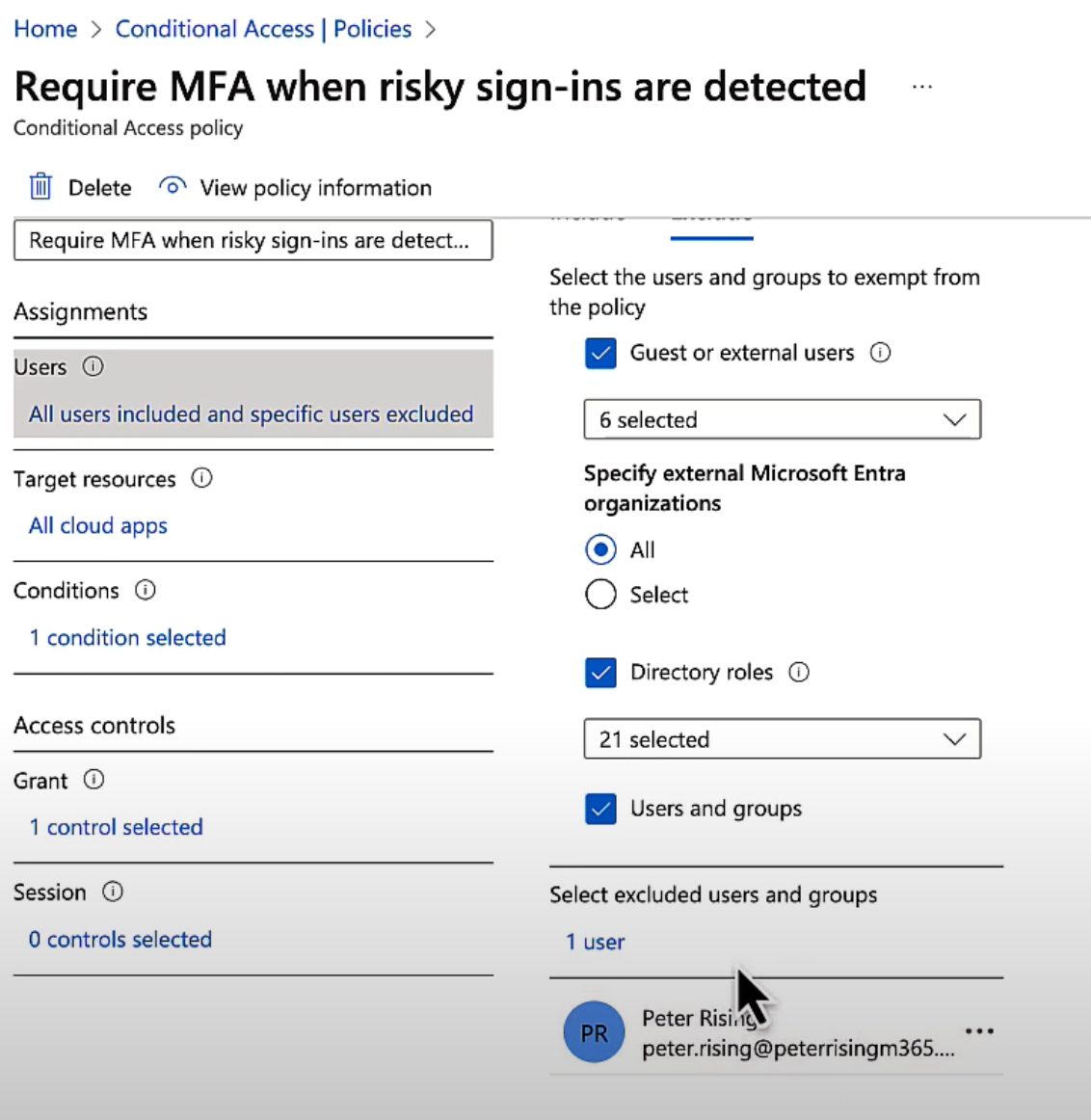How to use Authentication Strengths with Microsoft Entra Conditional Access
Master Microsoft Entras Conditional Access control to enhance authentication strengths and secure your resources efficiently.
In the scrutinized YouTube video, "Peter Rising [MVP]" unfolds a comprehensive guide on utilizing authentication strengths, particularly with an application widely recognized for its security capacities. Microsoft Entra Conditional Access is mentioned as one important attribute for secure functionalities. This YouTube session digs deep into how to harness these complex tools and repackage them into a simplified, efficient model for regular usage.
Typically, authentication strengths such as Password Identity, Multi-Factor Authentication (MFA), and Biometrics are top-rung favorites when talking about securing digital profiles. But with Entra's Conditional Access, you gain more than just these classic security assurances. You enter a realm where protocols are so tailored, virtually every possible loophole gets sealed off.

The speaker, teeming with insights and expert-grade knowledge, unveils how these authentication strengths operate a notch higher, especially when tethered to the superior security armory that Entra has become renowned for.
One of the remarkable aspects of this visual tutorial is that it's not just replete with raw theoretical data. It's practical, relatable, and bridges the gaps where most conventional security tutorials fail to reach. Anyone viewing this video walks away with an all-rounded understanding of how these security essences harmonize.
No matter what digital platform we explore, the evergreen awareness about security cannot be emphasized enough. This YouTube tutorial reinvents this narrative, providing an in-depth comprehension of authentication strengths and conditional access protocols, illustrated through the lens of a leading software suite.
A Closer Look at Entra's Conditional Access and Authentication Strengths
A broader perspective into this topic unravels the progressive strides in digital security practices. Whether it's a small business or an international corporation, the necessity of stringent security measures is universally recognized. Solutions like Microsoft Entra redefine this necessity by offering a cutting-edge level of user authentication and access controls, which are highly customizable to various enterprise requirements.
Typically, organizations need to balance accessibility with security. Microsoft Entra's Conditional Access provides an intelligent solution to this quandary by enabling secure management of user access rights and authentications.
This framework of enforcing specific conditions for accessibility, coupled with strong user authentication measures, allows organizations to enjoy efficient, secure network operations. Organizations can then focus more on their core functions, trusting in the robust security infrastructure that Entra provides.
Read the full article How to use Authentication Strengths with Microsoft Entra Conditional Access!
Learn about How to use Authentication Strengths with Microsoft Entra Conditional Access!
Microsoft has introduced Authentication Strengths to its Conditional Access functionality, providing administrators with increased control over the level of access to resources, all based on the required strength of authentication methods. This allows different combinations of methods to be used to access different types of resources.
To improve security, administrators can opt to specify only phishing-resistant methods for sensitive resources. Less secure methods such as password + text message can be allowed for nonsensitive resources. Microsoft has also introduced customized authentication strengths, allowing administrators to set an authentication strength based on a bespoke combination of methods.
Microsoft has built three predefined authentication strengths- Multifactor authentication strength, Passwordless MFA strength, and Phishing-resistant MFA strength. All can't be modified, but you can create a custom authentication strength based on the authentication method combinations you want to allow.
- Multifactor authentication strength generally includes multiple layers of security.
- Passwordless MFA strength is characterized by authentication methods that satisfy MFA but don't require a password.
- Phishing-resistant MFA strength features methods that require an interaction between the sign-in surface and the authentication method.
The Authentication methods policy is increasingly important, especially for restricting external access towards an organization's sensitive apps. By allowing administrators to enforce specific authentication methods, like phishing-resistant methods, securing external user access becomes an attainable goal.
In order for an external user to gain access to the resource, multiple factors are evaluated:
1. Which authentication method was previously used?
2. Which methods are available for the authentication strength?
3. Which methods are allowed for user sign-ins in the Authentication methods policy?
4. Is the user registered for any available method?

Conditional Access policies only evaluate the user's primary authentication method. If an authentication strength is equivalent to the Require multifactor authentication grant control, then the authentication strength doesn't restrict the user's initial authentication.
Understanding the relationship between Authentication Strength and the Authentication Methods Policy is vital. To effectively apply authentication strengths, one needs to fully grasp both the authentication strengths and the authentication methods policy. The Authentication Methods Policy provides the basis for enabling and managing all authentication methods across an organization.
Before utilizing authentication strengths, it's important to ensure that the tenant has a Microsoft Entra ID P1 license and that combined registration has been enabled on your platform. The legacy registration may create a poor user experience, meaning combined MFA and SSPR registration is recommended.
Understanding and effectively applying these features allows administrators to implement greater protection over sensitive resources, giving businesses increased security and control over their data. This adds another level to Microsoft's security offerings, making it an even more appealing choice for businesses worldwide.
More links on about How to use Authentication Strengths with Microsoft Entra Conditional Access!
- Conditional Access authentication strength
- 4 days ago — Authentication strength is a Conditional Access control that allows administrators to specify which combination of authentication methods can be ...
- Conditional Access - Authentication strength for external ...
- 4 days ago — Authentication strength is a Conditional Access control that lets you define a specific combination of multifactor authentication (MFA) methods ...
Keywords
Microsoft Entra, Authentication Strengths, Conditional Access, How to Use Microsoft Entra, Microsoft Entra Guide, Security Protocols, Secure Access, Entra User Tips, Improve Authentication, Microsoft Security.
